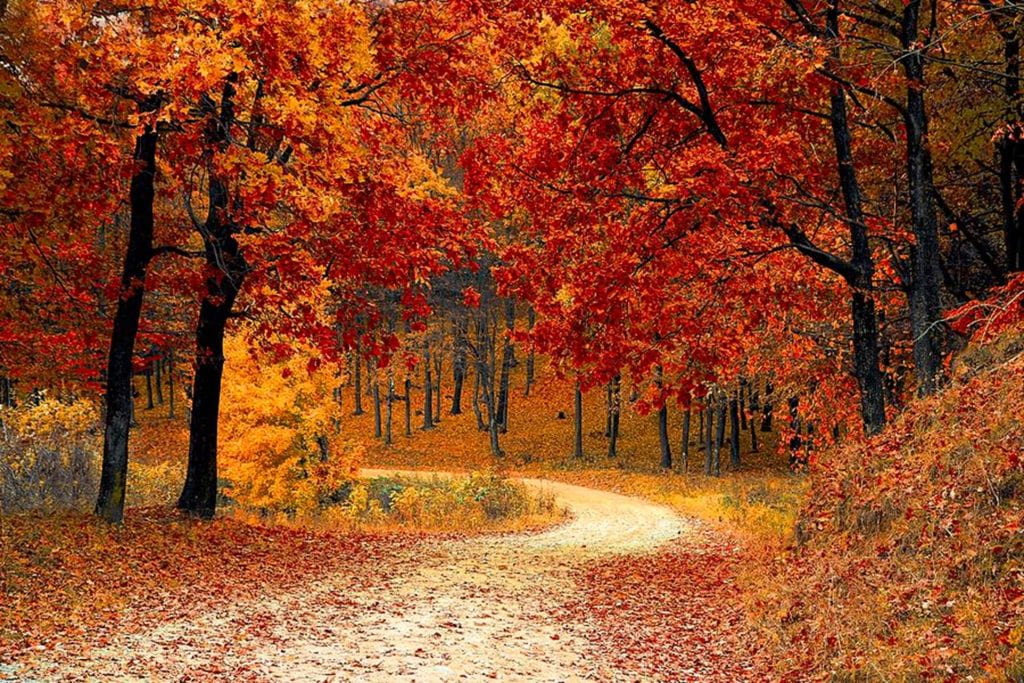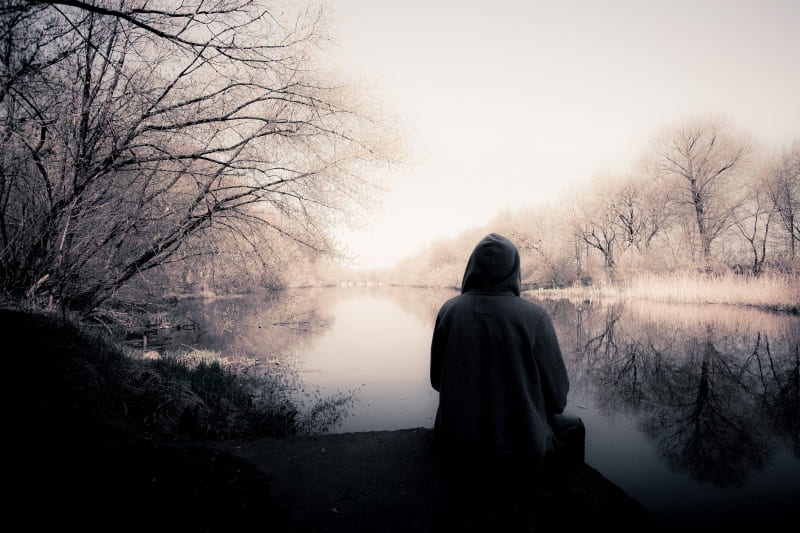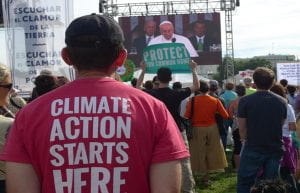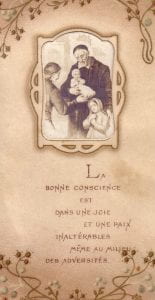
“Another effect of charity is to rejoice with those who rejoice. It causes us to enter into their joy … to unite us in one mind and in joy as well as in sorrow.”[1] – Saint Vincent de Paul
I have a sense these days that folks are having a hard time feeling hopeful. I only need to glance at the front page of the newspaper to understand why. I gave up consuming too much news a while back. It wasn’t doing any good for my soul.
From the little I’ve read and heard, Saint Vincent de Paul seems to have been a joyful person. He, too, lived at a time when there was plenty to be worried about. Plagues ravaged Europe in Vincent’s day, institutional corruption ran deep, and the social order was profoundly unfair. The poor that he spent so many years serving bore the brunt of the suffering. He had beloved friends die young and violently. He took these losses hard. Yet he found a way to remain joyful. Vincent is certainly not the only person who has known loss all too well but remained hopeful, joyful, and grateful. What’s their secret?
Last month I was listening to a podcast on grief and loss created by Anderson Cooper called “All There Is.” One of the episodes is an extraordinary interview with Stephen Colbert. At age ten, Stephen lost his father and two teenage brothers in a plane crash. That is a defining experience in his life, obviously. Of course, he wishes that didn’t happen. Yet he will say he’s grateful for it. Stephen believes in his core that it is a gift to exist. He knows that existence comes with suffering; it’s unavoidable. He believes that if you’re grateful for your life, you have to be grateful for all of it. While he wishes that tragedy never happened, he knows that having experienced that unimaginable loss made him a more compassionate, more human person. He can’t help but acknowledge that it has helped him love others in a deeper way. In that sense, Stephen is grateful for the thing he most wishes didn’t happen. This tragedy did not keep Stephen from being a joyful, hopeful person. I think he’s on to something.
Later this month, I will be accompanying a group of students on a service immersion trip to El Salvador. From what I have read of the history of Central and South America, I have been impressed by how a suffering and oppressed people produced beautiful music and art that spoke not only to their resilience and courage but indeed to their joyfulness. On a recent trip to Ireland, I was again struck by how much beautiful poetry, as well as raucously fun music and dance, seems to come from those who suffer greatly. How do they do it? On the trip to El Salvador, my role is staff mentor. I think, however, that I have much more to learn than to impart.
I’m thinking Vincent’s secret might lie in his animating question: “What must be done?” Vincent, Louise, and those they served with didn’t just lament the suffering of others. They went and lived with those who were afflicted. They walked with them and shared in their lives. My guess is they hated the circumstances that resulted in such suffering. Like Stephen Colbert, however, they leaned into the reality of the thing they wished wasn’t so. In sharing in the suffering of others, they also shared in their joy.
I don’t pretend to know the answer to the question of how to remain hopeful in these dark times. But I suspect that running away from suffering isn’t the answer. Nor is reading about it and lamenting it. Maybe, paradoxically, going through it with others is a better strategy.
Reflection Question:
Ponder artworks, poems, movies, etc. that are sad or tragic while also being unbearably beautiful. How is it that those two things can coexist in your heart?
Reflection by: Rich Goode, Executive Director, Planned Giving | Advancement and External Relations
[1] Conference 207, Charity (Common Rules, Chap. II, Art. 12), 30 May 1659, CCD, 12:222. See: https://via.library.depaul.edu/vincentian_ebooks/36/.


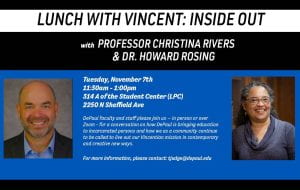

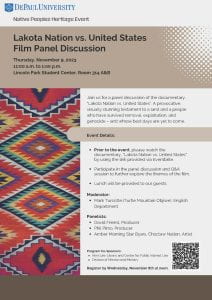
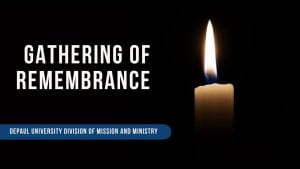 Annual Gathering of Remembrance is Thursday, November 16th
Annual Gathering of Remembrance is Thursday, November 16th